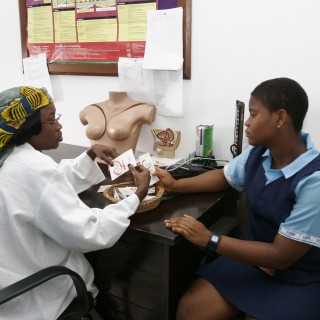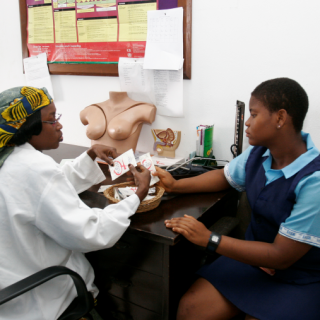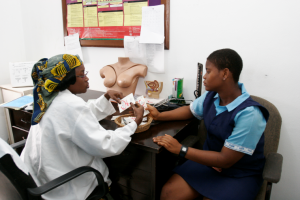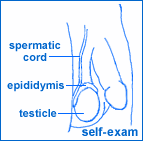Do You Think You Might Be Pregnant?
To get pregnant, a girl has to have had intercourse or have been with a boy who ejaculated very near to the opening of her vagina. If you have been having sex, you could be pregnant; even if you’re very young, or have had sex only once and even if you were using some methods of birth control.
A missed menstrual period is usually the first sign of pregnancy. Some girls have a period that is shorter than usual and with less bleeding, even though you are pregnant. If you miss a period that doesn’t seem quite right, you may be pregnant. If you miss a period and have even a few signs of pregnancy, that’s a pretty sure indication that you are pregnant – but it’s not 100% pregnant sure. The only way to tell for sure is to have pregnancy test.
To be sure you are not pregnant, you need two procedures:
- a urine or blood test (the urine test is more common)
- a pelvic examination-the doctor can see by working at your cervix and feeling your uterus, whether you are pregnant and about how pregnant you are.
A pregnancy won’t go away just because you ignore it and won’t go away because you wish or pray for it to go away!
Care During Menstruation
Extra care has to be taken for cleanliness during menstruation. Such care includes using absorbent material lie sanitary pads, cotton wool, clean piece of cloth or tampons, to catch or soak up the menstrual flow. The material you use has to be changed frequently so that you can keep feeling fresh and comfortable. When the menstrual fluid hits the air outside your body, it dries up and is another reason why you need to change your pad or cloth several times a day. Finally, avoid using powders, perfumes and deodorant tampons in your genital opening.
Preventing STDs
The only sure way that is 100% effective for preventing sexually transmitted diseases (STDs), is to abstain from having sex. If however you must have sexual intercourse, you have to practice safe sex. This involves:
- Having only one faithful sexual partner who I not infected with an STD. also find out about your partner’s past sexual history.
- Using a condom and a spermicidal form, tablet or jelly, every time you have sexual intercourse. These will protect you from STDs although they are not 100% safe.
- Knowing the signs and symptoms of STDs. Beware of signs like a rash, a sore, or discharge on the genitals.







You must be logged in to post a comment.